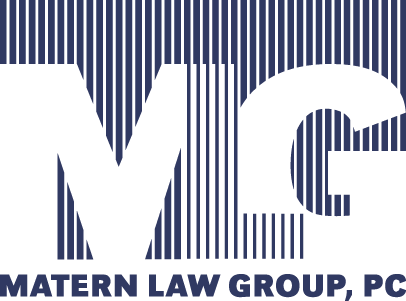Homeowners are fighting back
Hundreds of homeowners have engaged Matern Law Group to hold Sunrun (which acquired Vivint Solar) accountable for deceptive sales and business practices. For more than a decade, Vivint Solar/Sunrun have used aggressive, dishonest sales tactics and cruel, hard-to-understand “power purchase agreements” to lock consumers into 20-year obligations that are difficult and extremely expensive to escape. These practices violate California consumer protection laws and, as a result, you could be entitled to compensation or other relief to help you get out of your contract.
Call us today at 1-888-383-4107
How it works
Call us today at 1-888-383-4107
Who we Are
26 Lawyers. 300 years of combined experience. Settlements of up to $140 million won for a single case.
Whether you are involved in a personal dispute or seeking justice on behalf of a group of victims, having reputable and experienced law professionals on your side can help restore the balance of power and protect your rights.
Join the fight!
Contact us today!
solar@maternlawgroup.com
1-888-383-4107
1230 Rosecrans Ave., Suite 200
Manhattan Beach, CA 90266
FAQs
What is a Power Purchase Agreement?
A power purchase agreement (“PPA”) is a contract requiring you, the homeowner, to pay a specified rate for all the power a residential solar energy system produces over a period of time, regardless of whether you use all of the power. If you use more than the system produces, then you will pay your local utility (e.g. PG&E, Southern California Edison) for the additional energy at prevailing rates.
Does Sunrun put a lien on my home?
When you sign up, Sunrun files a UCC-1 Financing Statement that looks and acts like a lien, even though it’s not called a lien.
Are there tax benefits to me under a PPA?
No. The solar company owns the system throughout the contract and therefore is entitled to utilize any tax credits or other governmental benefits.
What if I Want to Cancel My Sunrun PPA?
Whether you cancel in year one or ten, you must buy out the remainder of the contract. That means pre-paying the energy the system will produce over the term of the contract. Additionally, Vivint Solar/Sunrun PPAs usually reserve the right to recover other costs incurred with cancellation or default, such as debt collection and credit reporting costs and legal fees. Ultimately, the size of your system and timing of cancellation will determine the cancellation fee, but it is common for such fees to be tens of thousands of dollars.
What if I want to sell my home?
In order to sell your home, you have two options: (1) Persuade the homebuyer to take over your PPA, or (2) buy out the entire contract if the homebuyer won’t agree to the assignment. Either way, the PPA will likely complicate your transaction. You may have to reduce the sale price or offer other concessions. And if they won’t budge, you must buy out the PPA (making you the owner) and remove, transport, and reinstall the system yourself.
Can I file a class action lawsuit?
Unfortunately, no. Except for the very first consumers who signed up with Vivint Solar more than a decade ago, every version of the PPA contains an arbitration agreement and class action waiver. That means any legal dispute must be brought in a private legal action called arbitration and you cannot join with other consumers who have similar claims.
What kind of relief can I get in arbitration?
The good news is you can get the same relief as in a court of law. That could mean cancellation or modification of your PPA, monetary compensation, or other relief.
Is arbitration expensive?
Arbitration is not expensive for you. Under the PPA, Sunrun must pay for arbitration costs and fees, which can be tens of thousands of dollars, whereas we just pay a small filing fee.
How are you paid?
We only get paid if we win—meaning we receive a portion of any arbitrator award or settlement. If we recover nothing, you pay nothing. While arbitrations are typically quicker than lawsuits filed in court, the legal process is hard to predict. Some cases may resolve within several months and others may take a year or two.






